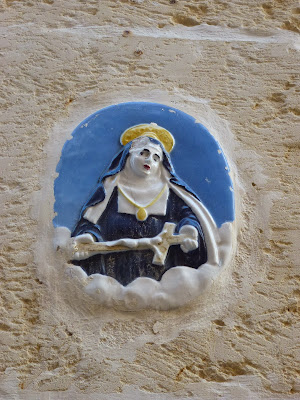I have been reading my way incredibly slowly - that
is over a course of years - through the so-called Shorter Pepys (just 1000 pages -a third of the original diary). I
read a chunk, put the marker in, then return to it at the same point a year or
two later. It's a long term project, exploring the uncensored inner world of
this complex, energetic man: ravenously alive, insatiably curious, egotistical,
vain, compassionate and completely human. And I've got to 1666 - the year of
the great fire of London, of which he wrote an extraordinarily vivid account.
Pepys was methodical as well as spirited. On the
last day of each year, he totted up his accounts, both financial and
non-material. 1666 sees him extremely well-off. He has 6200 pounds - 1800 more
than the previous year. It's unclear exactly where this money comes from - many
of the nuances of his daily dealings pass over my head - but it seems he takes
bribes in the course of his work, as secretary to the Navy Board concerned with
the awarding of supply contracts during a
tense period of war with the Dutch, yet at the same time, as a civil
servant he's also outstandingly industrious, efficient and intelligent - by the
standard of the times - and loyal to two kings, Charles II and James II, patently
unworthy of respect. As the diary is written in a form of encoded shorthand he’s
breathtakingly frank about himself – and other people, both low and high.
'Thus ends this year of public wonder and mischief to
this nation - and therefore generally wished by all people to have an end.
Myself and family well, having four maids , and one clerk, Tom, in my house...Our
healths all well; only, my eyes, with overworking them, as sore as soon as
candlelight comes to them, and not else. Public matters in a most sad
condition. Seamen discouraged for want of pay, and are become not to be
governed...Our enemies, French and Dutch, great, and grow more, by our poverty.
The Parliament backward in raising, because jealous of spending, of money. The
City less and less likely to be built again, everybody settling elsewhere, and
nobody encouraged to trade. A sad, vicious, negligent Court, and all sober men
fearful of the ruin of the whole kingdom this next year - from which, good God
deliver us.'
And then, a typically, Pepysian cheering closing of
the year’s account - moving from the state of the nation to worldly
self-satisfaction: 'One thing I reckon remarkable in my own condition is that I
am come to abound in good plate, so as at all entertainments to be wholly
served with silver plates, having two dozen and a half.'
Over the reach of three hundred years he gazes out
at us from a portrait he had commissioned, and of which he was deeply proud, holding
a musical composition of his own - he was not backward in praising his own
songs - in a coat that has the sheen of prosperity to it. He looks sensuous,
vain, inquisitive, interested, human. Happy New Year.
.






























